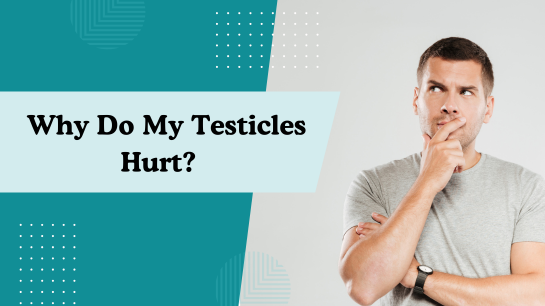Varicocele: A common but often misunderstood cause of male infertility
Varicoceles—enlarged veins within the scrotum—are a surprisingly common condition that often goes unnoticed or untreated. While they might seem harmless at first, varicoceles can disrupt normal testicular function, cause discomfort, and, in many cases, contribute to male infertility.
For men facing fertility challenges, understanding how varicoceles affect reproductive health and exploring the available treatment options is an essential step toward improving outcomes and restoring fertility.
What causes varicoceles?
The exact cause of varicoceles remains uncertain. However, it’s believed that defective or absent valves within the veins of the spermatic cord lead to blood pooling and vein enlargement. This malfunction disrupts normal blood flow, increasing pressure and vein dilation. Varicoceles are more commonly observed on the left side due to anatomical differences in venous drainage.
Does varicoceles cause infertility?
Yes, varicoceles can have a significant impact on male fertility. They are linked to approximately 40 % of all male infertility cases. However, it’s important to note that not every man with a varicocele experiences fertility issues—many are still able to conceive without any medical intervention.
How do varicoceles affect fertility?
The connection between varicoceles and infertility isn’t fully understood. Still, one key theory is that varicoceles raise the temperature inside the scrotum due to the accumulation of blood in the enlarged veins. Elevated scrotal temperature can negatively affect both testicles, impairing sperm production and quality and ultimately lowering the chances of conception.
When does a kidney stone require surgery: The surgical threshold
If you’re experiencing fertility issues or notice symptoms like scrotal discomfort or swelling, it’s essential to consult a specialist. Dr Muthana Alrawi, an expert urologist and andrologist, offers comprehensive evaluations to diagnose varicoceles and assess their impact on male fertility.
Diagnosis typically begins with:
Physical examination: This may include the valsalva manoeuvre, where you stand, take a deep breath, and strain while your doctor checks for enlarged veins in the scrotum.
Scrotal ultrasound: A non-invasive imaging test that gives a clear view of the testicular veins and helps confirm the presence of a varicocele.
Semen analysis: Used to assess sperm count, motility, and overall sperm health if fertility is a concern.
Hormone blood tests: Check levels of testosterone and FSH to evaluate hormonal balance and reproductive function.
Potential fertility-related issues linked to varicoceles:
1- Low testosterone (Male hypogonadism)
Testosterone is secreted in the testicles and is crucial for male reproductive well-being.
It affects libido, muscle mass, bone density, and overall mood. A varicocele can interfere with testosterone production, potentially leading to:
- Reduced sex drive
- Decreased muscle mass
- Shrinking of the testicles
- Mood changes, including depression
2- Azoospermia (No sperm in semen)
Azoospermia is a condition where sperm is absent in the ejaculate, and it is a primary cause of male infertility. Varicoceles may contribute to this condition by impairing sperm development within the testicles.
Seeking care from varicocele specialists: Dr Muthana Alrawi
If you’re experiencing fertility issues or notice symptoms like scrotal discomfort or swelling, it’s essential to consult a specialist. Dr Muthana Alrawi, an expert urologist and andrologist, offers comprehensive evaluations to diagnose varicoceles and assess their impact on male fertility.
Diagnosis typically begins with:
Physical examination: This may include the valsalva manoeuvre, where you stand, take a deep breath, and strain while your doctor checks for enlarged veins in the scrotum.
Scrotal ultrasound: A non-invasive imaging test that gives a clear view of the testicular veins and helps confirm the presence of a varicocele.
Semen analysis: Used to assess sperm count, motility, and overall sperm health if fertility is a concern.
Hormone blood tests: Check levels of testosterone and FSH to evaluate hormonal balance and reproductive function.
Recognising varicocele symptoms
Varicoceles often develop gradually and might not present noticeable symptoms. When symptoms occur, they may include:
Scrotal discomfort: A dull ache or discomfort in the scrotum may worsen with prolonged standing or physical activity and improve when lying down.
Visible or palpable veins: Enlarged veins that feel like a “bag of worms” within the scrotum.
Testicular atrophy: Shrinkage of the affected testicle.
Infertility: Difficulty achieving pregnancy after a year of regular, unprotected intercourse.

Treatment options for varicocele
Managing a varicocele depends mainly on its severity, associated symptoms, and whether it’s affecting fertility. Fortunately, surgical and nonsurgical options are available, each tailored to meet individual patient needs.
1- Surgical treatments
For moderate to severe cases, or when fertility is a concern, surgery may be recommended. Surgical techniques are designed to block or reroute the problematic veins, restoring normal blood flow to the testicles.
Microscopic varicocelectomy
A tiny incision is made in the groin for this minimally invasive procedure. Using a high-powered surgical microscope, the surgeon identifies and ties off the enlarged veins while preserving healthy ones. This method is known for its precision and low complication rates.
Laparoscopic varicocelectomy
This method involves making small cuts in the abdomen, allowing the surgeon to use a laparoscope and surgical tools to identify and close off the affected veins.
2- Minimally invasive (Non-surgical) treatments
If you’re seeking alternatives to surgery, several non-surgical procedures can effectively address varicocele-related issues.
Varicocele embolisation: Catheter-directed embolisation
An interventional radiologist performs this procedure by using imaging technology to guide a catheter through a vein to the problematic area.
Sclerotherapy: Sclerotherapy works by injecting a special solution into the vein, causing it to close and stop blood flow.
3- Conservative & supportive therapies
Supportive therapies can offer relief and prevent progression for milder cases or those without significant symptoms.
Cold compresses (Ice packs): Ice packs are able to alleviate swelling and pain in less severe varicocele conditions.
Over-the-counter medications: Pain and inflammation can be temporarily alleviated with anti-inflammatory medications like ibuprofen or naproxen.
Pelvic floor exercises (Kegels): These exercises improve blood circulation and strengthen pelvic muscles, possibly supporting overall testicular health.
What to expect from varicocele treatment?
Whether surgical or nonsurgical, effective treatment can result in significant improvements, including:
- Reduced or eliminated pain and swelling
- Enhanced semen quality
- Increased chances of natural conception
- Improved testosterone levels in some cases (addressing hypogonadism)
Consult Dr Muthana Alrawi: Your partner in male fertility health
It’s important to choose the right specialist when dealing with fertility problems. Dr Muthana Alrawi and his experienced team are dedicated to providing comprehensive evaluations and personalised treatment plans.
Dr Muthana Alrawi, a renowned consultant andrologist and urologist based in Dubai brings world-class expertise and compassionate care to every patient.
With a personalised approach and advanced diagnostic tools, he and his team are committed to helping you find answers and practical solutions.
They take the time to understand your goals, answer all your questions, and equip you with the information needed to make informed decisions about your reproductive health.




